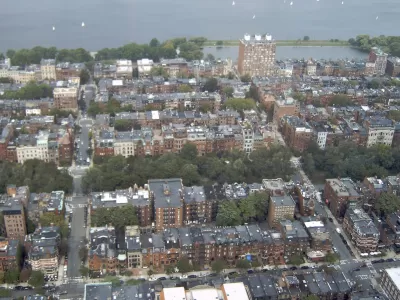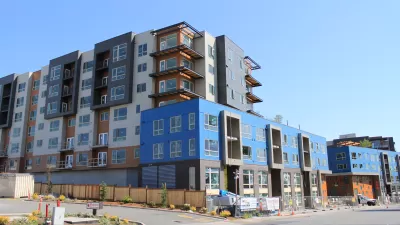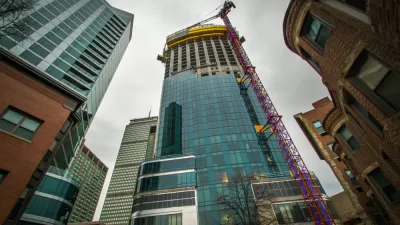Developers pay impact fees to fund affordable housing and job programs, but the mayor wants the city to have more discretion around changing the requirements.

Boston Mayor Marty Walsh wants commercial developers to contribute more funding for affordable housing. He is going to ask the state legislature for more flexibility around the linkage rules, which currently require developers to pay $9.03 per square foot for housing and $1.78 for job training and which generated $31 million from 2014 to 2018, reports Tim Logan:
Under current state law, Boston can increase the fees once every three years, at a rate tied to inflation. Walsh’s proposal would do away with those limits, making it easier for the city to adapt to the market, said John Barros, his chief of economic development.
The linkage fee issue is one of 15 bills Walsh is filing with the state legislature. Massachusetts operates under home-rule petitions where local municipalities get approval from state legislators for changes to laws.
FULL STORY: Affordable housing funds could get boost from developers under Walsh plan

Planetizen Federal Action Tracker
A weekly monitor of how Trump’s orders and actions are impacting planners and planning in America.

Restaurant Patios Were a Pandemic Win — Why Were They so Hard to Keep?
Social distancing requirements and changes in travel patterns prompted cities to pilot new uses for street and sidewalk space. Then it got complicated.

Map: Where Senate Republicans Want to Sell Your Public Lands
For public land advocates, the Senate Republicans’ proposal to sell millions of acres of public land in the West is “the biggest fight of their careers.”

Maui's Vacation Rental Debate Turns Ugly
Verbal attacks, misinformation campaigns and fistfights plague a high-stakes debate to convert thousands of vacation rentals into long-term housing.

San Francisco Suspends Traffic Calming Amidst Record Deaths
Citing “a challenging fiscal landscape,” the city will cease the program on the heels of 42 traffic deaths, including 24 pedestrians.

California Homeless Arrests, Citations Spike After Ruling
An investigation reveals that anti-homeless actions increased up to 500% after Grants Pass v. Johnson — even in cities claiming no policy change.
Urban Design for Planners 1: Software Tools
This six-course series explores essential urban design concepts using open source software and equips planners with the tools they need to participate fully in the urban design process.
Planning for Universal Design
Learn the tools for implementing Universal Design in planning regulations.
Heyer Gruel & Associates PA
JM Goldson LLC
Custer County Colorado
City of Camden Redevelopment Agency
City of Astoria
Transportation Research & Education Center (TREC) at Portland State University
Camden Redevelopment Agency
City of Claremont
Municipality of Princeton (NJ)





























